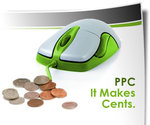SEM is a Tool, Not a Divining Rod
Here's a taste of what I heard at ad:tech Miami's The State of Search in Latin America.
How do you think search fits into the marketing mix?
"Research suggests AdWords placement impacts brand recognition," said commercial director Andreas Huettner of Google in Brazil.
Do you think LatAm is behind [in terms of search marketing's maturity]?
"We are definitely behind. Which is why we were on an evangelization mission."
The Google director's "evangelization" comment sparked a condescending panel-wide lament about how "traditional marketers" just don't get search and are reluctant to try it.
These men talked of traditional marketing like it was some backwater village ritual. And, like overzealous missionaries, they failed to see the logical fallacies in their brave new religion.
Search advertising, the pay-per-click (PPC) component in particular, is presented to hesitant marketers as a direct marketing tool we all just have to "master." The pitch is deceptively simple: play your keywords right, and you'll invest a little and get a lot back.
As the popularity of PPC search increases in Latin America, saturation will drive prices up, admitted Alexander Kavinsky, director of New Products and SEM at Midiadigital. "But as of today, search is quite effective and quite cheap in LatAm."
What he's saying is, Get in now. Those clicks are waiting to be plucked off the vine.
But what happens after saturation? Prices go up -- and as they do, the likelihood of making a profit on your investment goes down. In the American market, no amount of "optimization" conducted with a Google or Yahoo consultant can motivate a PPC campaign in a saturated industry to so much as break even.
I've experienced the panic that comes with realizing great keywords no longer convert well. And even if click-through can be cajoled into improving, prices climb faster, absorbing any profits I could hope to cull from PPC.
When my company slipped into high monthly negatives in on their PPC campaigns, I approached my employers, who told me not to worry. As long as they go negative no more than $10,000 per month in search, they can afford the loss.
"Why is it okay to go negative at all?" I had asked.
They attributed it to branding. "Seeing us at the top of the sponsored listings sends a strong message" to rivals, affiliates and customers, my bosses argued.
The company already shined in organic listings; we were always among the top 3 results in our sector, so we hardly had to throw cash at a "branding" problem that didn't exist.
"Search is definitely helping branding and branding is definitely helping search. A number of published studies have been done, where you can see how they interplay," Kavinsky crooned, echoing something we heard repeatedly in that short hour: Search helps with branding. Trust us. There's been research.
But when the panelists pulled the "branding" card, they never made a distinction between sponsored and organic search; neither did they give us data or names from this valuable "research."
"Look it up," they kept saying.
Here's one report I managed to find on branding and SEM. Like our panelists, it claims there is a correlation between SEM and branding.
And, like our panelists, it fails to draw a distinction between organic and paid search, but puts all the weight of branding on keyword selection -- which suggests paid search is what helps your brand, organic be damned. "What is an effective SEM campaign based on? Yep. Keywords. Choosing them is both an art and a science," it reads.
Unfortunately, no amount of keyword selection will help you fare well in sponsored search if your market is saturated.
In direct marketing, a marketer conducts a campaign under the cutthroat impression that he will spend X and yield 2X. If he fails to break even, he either makes a measurable change -- or he simply stops.
This is the beauty of the backwater approach: it's results-based, and nobody's trying to pop philosophize otherwise. You spend, measure and judge the quality of a program by the result. If you don't realize a profitable response in a certain window of time -- say, between 2-4 weeks of sending out a mailer -- something is wrong.
You don't keep doing the same thing every month because it's "good for branding."
"Pay-per-click is a direct marketing tool," snapped Jolie O'Dell, an armchair social media consultant. "And it should be treated like one."
So why do search experts ask us to treat PPC advertising differently?
If a PPC campaign stops pulling its weight because of market saturation, you can tinker all you like; it won't make a damn bit of difference. My advice to the branding-obsessed is to get SEO-savvy. Whatever searchers might feel about sponsored listings, we know for sure they trust the sites that rank well in the organic listings. (As an added perk to merit-based means, organic won't cost you $10 per click.)
If you can afford to "brand" indiscriminately across both sponsored and organic, more power to you. I hope you're making the on-paper losses up elsewhere.
Because frankly, I've never heard of anyone who managed to create Apple or Google-caliber brand equity with ostentatious sponsored search buys. This is marketing, not alchemy.



Comments
So you met a lot of SEM tools then?
What a clever way to put it.